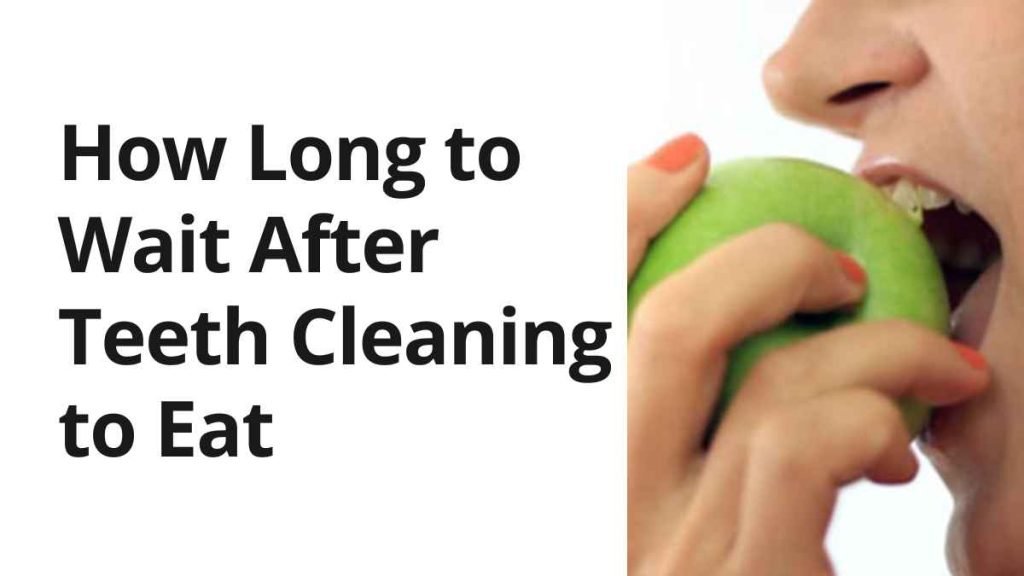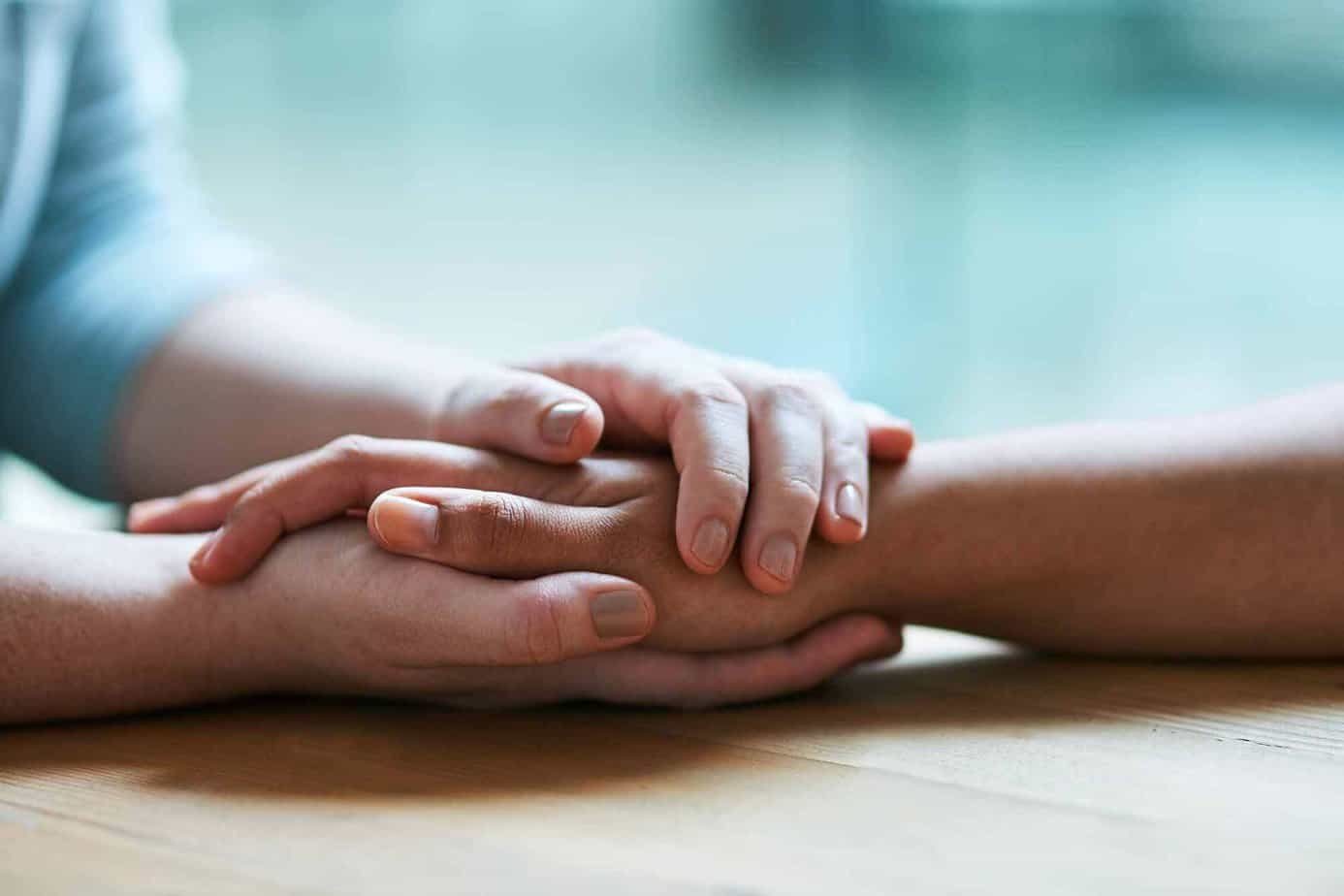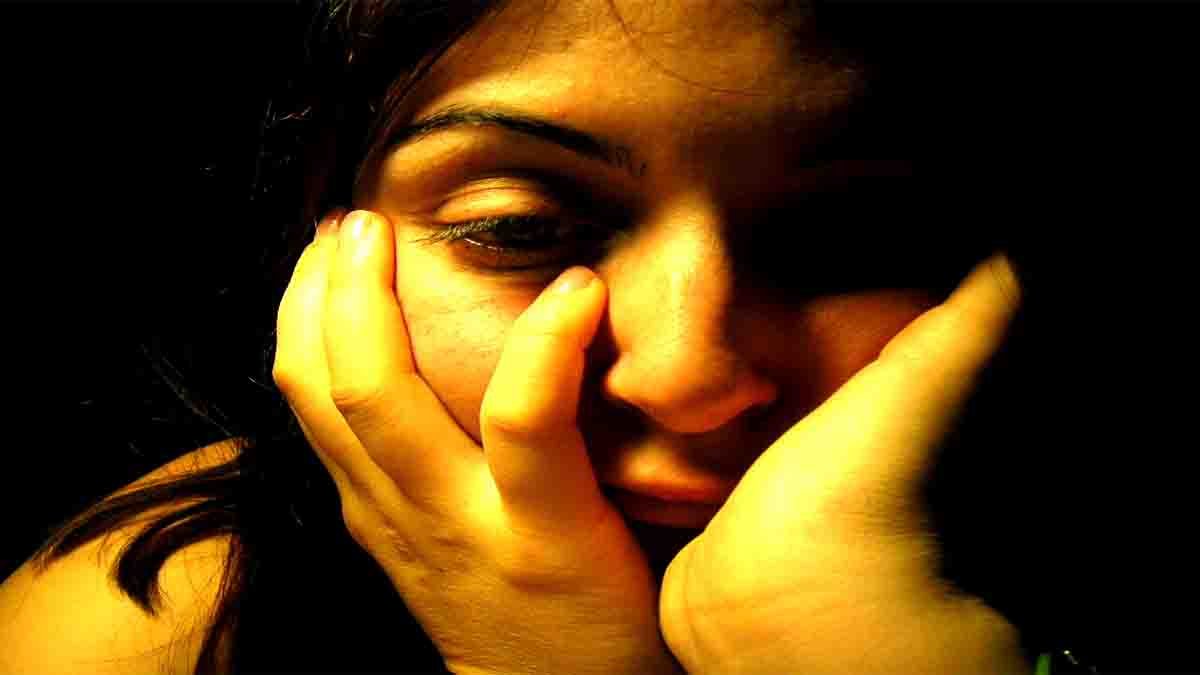How Long to Wait After Teeth Cleaning to Eat! When it comes to oral hygiene, few things are as refreshing as a professional teeth cleaning session. After your dentist or dental hygienist meticulously cleans your teeth, you might be eager to dive back into your regular routine, including enjoying your favorite meals. However, there’s a crucial question lingering on your mind: how long should you wait after teeth cleaning to eat? In this comprehensive guide, we will explore How Long to Wait After Teeth Cleaning to Eat. Here we’ll explore not just the waiting time, but also the reasons behind teeth cleaning, rules to follow, suitable foods, and common mistakes to avoid.
Table of Contents
Introduction
Teeth cleaning, also known as dental prophylaxis, is an essential dental procedure that removes plaque, tartar, and stains from your teeth. It helps prevent tooth decay, gum disease, and bad breath, ensuring your oral health is in top-notch condition. But, once the cleaning is done, how long should you abstain from eating?
Why Get Your Teeth Cleaned?
Before delving into the waiting period, let’s understand why getting your teeth cleaned is vital. Regular dental cleanings help in:
- Preventing Cavities: By removing plaque, the primary cause of tooth decay, cleanings safeguard your teeth against cavities.
- Maintaining Healthy Gums: Cleanings eliminate tartar, which, if left untreated, can lead to gum disease. Healthy gums are the foundation of strong teeth.
- Improving Bad Breath: Removing plaque and bacteria significantly reduces bad breath, leaving you with a fresh and confident smile.
- Detecting Oral Issues: Dental professionals can spot potential problems during cleanings, allowing early intervention and preventing more severe oral issues.

How Long to Wait After Teeth Cleaning to Eat?
After a teeth cleaning session, it’s best to wait for at least 30 minutes before eating. This short waiting period allows any fluoride treatment, if applied, to fully penetrate your teeth, enhancing its effectiveness in preventing cavities. Additionally, waiting minimizes the risk of consuming hot or cold foods immediately, which can cause discomfort due to teeth sensitivity after cleaning.
Are There Any Other Rules to Follow Before or After a Cleaning?
Aside from the waiting time, there are a few other rules to keep in mind before and after a teeth cleaning:
Before the Cleaning:
- Brush Gently: Brush your teeth gently before the cleaning to remove surface debris, making it easier for the dental professional to clean thoroughly.
- Inform Your Dentist: Discuss any dental concerns or medical conditions with your dentist before the cleaning. This ensures they can tailor the cleaning process according to your specific needs.
After the Cleaning:
- Avoid Staining Substances: Steer clear of tobacco, coffee, tea, and red wine after a cleaning, as your teeth are more susceptible to staining during this time.
- Be Gentle: Brush and floss gently after the cleaning to avoid irritating your gums, especially if they are sensitive after the procedure.
What Can You Eat After a Teeth Cleaning?
Once the waiting period is over, you can resume your regular diet. However, it’s advisable to start with soft and easy-to-chew foods, gradually transitioning to your usual meals. Opt for foods rich in nutrients that promote oral health, such as:
- Yogurt: Yogurt is packed with probiotics, calcium, and protein, benefiting both your teeth and gums.
- Leafy Greens: Spinach, kale, and other leafy greens are high in vitamins and minerals, promoting overall oral health.
- Cheese: Cheese is rich in calcium and helps neutralize acid in the mouth, reducing the risk of tooth decay.
- Crunchy Fruits and Vegetables: Apples, carrots, and celery act as natural toothbrushes, cleaning your teeth and stimulating saliva production.
Foods to Avoid After Teeth Cleaning
While your options are diverse, there are certain foods you should avoid after a teeth cleaning to prevent any discomfort or complications:
- Sticky Sweets: Candies, caramels, and other sticky sweets can adhere to your teeth, promoting plaque formation and risking cavities.
- Acidic Foods and Drinks: Citrus fruits, tomatoes, and acidic beverages like orange juice and soda can erode tooth enamel, leading to sensitivity and decay.
- Hard Foods: Avoid hard candies, ice, and nuts immediately after a cleaning, as your teeth might be sensitive, and biting down on hard substances can cause discomfort.
Common Mistakes to Avoid
In the enthusiasm to resume normal activities, people often make some common mistakes after a teeth cleaning:
- Neglecting Oral Hygiene: Some individuals assume the cleaning alone is sufficient, neglecting regular brushing, flossing, and mouthwash use. Maintaining daily oral hygiene is crucial for lasting results.
- Ignoring Discomfort: It’s normal to experience minor discomfort or sensitivity after a cleaning. However, if the discomfort persists or worsens, consult your dentist promptly to address any underlying issues.
- Skipping Follow-up Appointments: Regular dental cleanings are typically recommended every six months. Skipping these appointments can lead to the buildup of plaque and tartar, negating the benefits of previous cleanings.
Tips and Tricks
To maximize the benefits of your teeth cleaning and ensure a healthy smile, consider these tips and tricks:
- Stay Hydrated: Drinking water helps wash away food particles and bacteria, maintaining oral hygiene between meals and after snacks.
- Chew Sugar-Free Gum: Chewing sugar-free gum stimulates saliva production, which helps neutralize acids and prevent cavities.
- Use Fluoride Toothpaste: Fluoride strengthens tooth enamel, making it more resistant to decay. Use fluoride toothpaste to enhance your oral protection.
- Schedule Regular Check-ups: Apart from cleanings, regular dental check-ups allow your dentist to monitor your oral health and address any concerns promptly.
Facts About It
- Dental Cleaning Frequency: Dental cleanings are typically recommended every six months. However, individuals with certain dental conditions or a higher risk of oral issues might need more frequent cleanings as per their dentist’s advice.
- Professional Expertise: Dental cleanings are performed by dental hygienists or dentists. These professionals have the expertise and specialized tools necessary for thorough cleaning and plaque removal.
- Painless Procedure: Dental cleanings are generally painless. If you experience any discomfort, inform your dental professional immediately, as they can adjust their technique to ensure your comfort.
- Insurance Coverage: Many dental insurance plans cover regular cleanings, making preventive dental care accessible and affordable for many individuals.
Conclusion
In conclusion of How Long to Wait After Teeth Cleaning to Eat, taking care of your oral health is not just about brushing and flossing; regular dental cleanings play a pivotal role in ensuring a healthy and confident smile. By understanding the waiting period after a teeth cleaning, adhering to essential rules, choosing the right foods, avoiding common mistakes, and following useful tips, you can maintain optimal oral hygiene. Remember, a little patience and care go a long way in preserving your precious smile for years to come. Here you can checkout that How to Whiten Teeth with Coconut Oil.
FAQs About How Long to Wait After Teeth Cleaning to Eat
Can I drink water immediately after a teeth cleaning?
Yes, you can drink water right after a teeth cleaning. In fact, it’s encouraged as it helps rinse away any residual cleaning agents or debris in your mouth.
Can I smoke after a teeth cleaning?
It’s best to avoid smoking after a teeth cleaning, as smoking can hinder the healing process and increase the risk of complications. Plus, smoking stains teeth, counteracting the benefits of the cleaning.
How long do the effects of a teeth cleaning last?
The effects of a teeth cleaning, including the smooth and clean feeling, typically last for a few days to a week. However, maintaining good oral hygiene practices at home and scheduling regular cleanings can prolong these effects.
Is it normal to experience sensitivity after a teeth cleaning?
Mild sensitivity after a teeth cleaning is normal and usually temporary. If the sensitivity persists or worsens, consult your dentist for further evaluation.
Can I eat spicy foods after a teeth cleaning?
Spicy foods can irritate your mouth, especially if you have any sensitivity after a cleaning. It’s advisable to avoid extremely spicy foods immediately after a dental cleaning.
Are there any specific foods that can help with teeth cleaning at home?
Foods like crunchy fruits and vegetables (apples, carrots), cheese, and sugar-free gum can aid in cleaning your teeth naturally by promoting saliva production and removing food particles.
How can I make my teeth cleaning appointment more comfortable?
Communicate any concerns or anxieties you have with your dental professional before the cleaning. They can adjust their approach to ensure you have a comfortable experience during the procedure.


